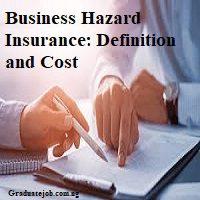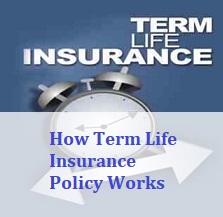Business hazard insurance is important for small business owners when applying for government loans and for protection against unforeseen casualties.
In this detailed guide, we’ll delve into the world of business hazard insurance, including what it involves, the factors to consider when deciding coverage, and where to get it. By the end of this article, you’ll learn why hazard insurance is critical for protecting your business against unforeseen setbacks and how its cost can vary depending on circumstances specific to your business.
READ MORE: International Health Insurance Providers In 2023
What is business hazard insurance?
Business hazard insurance is an insurance policy that protects businesses from a variety of risks, assuring financial security. It protects businesses against unforeseen catastrophes such as fires, vandalism, natural disasters, and more.
This insurance provides financial aid to repair or replace damaged property, allowing firms to recover quickly and affordably. Small Business Administration (SBA) loans require hazard insurance from businesses to qualify for the Paycheck Protection Program (PPP) loan or an Economic Injury Disaster Loan (EIDL).
Purchasing business hazard insurance is critical for business owners looking to protect their assets and assure continuity in the event of unforeseen obstacles.
5 common types of hazard insurance
1. Fire Insurance
One of the most basic types of hazard insurance covers damages caused by fires. It protects businesses from fire-related damage to their physical premises, equipment, and inventory.
2. Property insurance
Property insurance goes beyond fire insurance to cover a broader variety of hazards such as vandalism, theft, and certain natural catastrophes.
It covers tangible assets such as buildings, machines, and contents. All businesses irrespective of size must have property insurance.
3. Flood insurance
Floods can devastate businesses and cause unbearable damage. This hazard insurance covers damages caused by flooding incidents, assisting businesses in rebuilding and replacing damaged property.
4. Earthquake Insurance
Earthquake hazard insurance can help businesses located in seismic zones. This coverage protects against earthquake damage, allowing firms to recover quickly in the aftermath.
5. Windstorm and Hail Insurance
This hazard insurance is beneficial for businesses in places prone to extreme weather. It protects businesses against damages caused by windstorms, hurricanes, tornadoes, and hail.
Each of these types of hazard insurance offers specialized protection against distinct dangers. This allows businesses to customize their coverage to their specific needs and geographical areas.
Combining these insurance types can provide comprehensive protection against a wide range of risks that would otherwise disrupt corporate operations and financial stability.
READ MORE: Best House Rental Insurance Coverages In 2023
What is the cost of business hazard insurance?
The cost of business hazard insurance varies greatly depending on a number of criteria. Hazard insurance premiums can range from a few hundred to several thousand dollars per year, based on the following important factors:
1. Type of Coverage
The type of hazard insurance you select has a big impact on the cost. Basic coverage, such as fire or theft insurance, is typically less expensive than broader coverage that covers protection against several risks.
2. Property Worth
The worth of your company’s property, including buildings, equipment, and inventory, is a crucial factor in determining the premium. Higher premiums are often associated with higher property values.
3. Business Location
Your company’s geographic location is important. Natural disaster-prone areas, such as earthquakes or hurricanes, may have higher insurance prices due to the greater risk.
4. Construction Materials
The materials used in the construction of your structure can affect the cost. Premiums for properties made with fire-resistant materials may be cheaper.
5. Business Size and Industry
The size of your company and the industry in which you operate might have an impact on your risk profile. A manufacturing site, for example, may encounter different risks than a retail store, which may alter the premium.
6. Security Measures
Implementing security measures like alarm systems and sprinklers can reduce insurance costs by lowering the chance of theft or damage.
7. Claims History
A history of frequent claims can result in higher premiums since insurers view the firm as more risky.
8. Deductible
A greater deductible can reduce your premium, but it also means you’ll have to pay more out of cash before your insurance coverage kicks in.
9. Coverage limit
Higher coverage limits result in higher rates since the insurer assumes a bigger possible liability.
READ MORE: Daily Insurance: Meaning And Helpful Tips
Top 4 hazard insurance companies
1. BiBerk: Best for Financial Stability
BiBerk, a Berkshire Hathaway company, is well-known for its remarkable financial stability. This is essential when choosing an insurance company since it ensures that the company will be able to satisfy its financial commitments when claims arise.
BiBerk provides complete hazard insurance coverage with the backing of one of the world’s most reputable businesses.
2. Thimble: Best Value Coverage
Thimble is an excellent option for cost-conscious organizations looking for hazard insurance coverage.
They provide adaptable, on-demand coverage alternatives that let you pay just for the times when you need it. This is especially beneficial for organizations with varying needs or seasonal operations.
3. The Hartford: Best Worker’s Compensation Insurance
Hartford distinguishes itself by providing hazard insurance coverage that includes comprehensive worker’s compensation coverage. This is especially important for companies that prioritize their employees’ well-being.
Their comprehensive worker’s compensation coverage can assist in managing medical expenditures and missed pay as a result of work-related injuries.
4. Chubb: Best for Larger Small Businesses
Chubb is a fantastic choice for larger small enterprises that require more complex hazard insurance solutions. Their customized policies are designed to handle the special risks that larger organizations and businesses with expensive assets confront.
Chubb’s significant experience in addressing complex risks makes it a popular alternative for customers who require extensive coverage.






